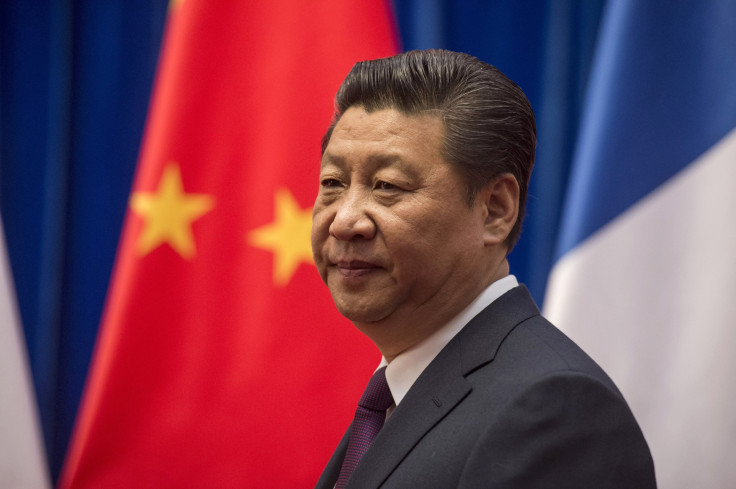China Launches Mobile App Of President Xi Jinping’s Writings Dubbed 'Electronic Little Red Book'

With many analysts describing him as China’s most powerful leader since Deng Xiaoping, the country’s President Xi Jinping gets plenty of media coverage. Since taking over as Communist Party Secretary General in 2012, he’s made a point of seeking to connect with China’s younger generation, cultivating a man of the people approach, holding meetings with bloggers, and using popular online phrases in his speeches. An official cartoon image of him has also been released.
Now he’s gone one step further -- with his own mobile App. The China Daily newspaper said on Friday that the app, which features a collection of Xi’s speeches and writings, was “the first time the top leader's complete works have been made available on phones.”
The app, with a title which can be read as “Study China” or, possibly, "Study Xi’s China," is reported to be the brainchild of an online learning website run by the Communist Party’s Central Party School. It includes links to Xi Jinping’s first book, “On Poverty Eradication,” another book of speeches from his time in Zhejiang Province a decade ago, and his latest book "Xi Jinping: The Governance of China," which was published late last year.
A new app launched in China featuring President Xi's remarks and works http://t.co/bmmRIUsZbP pic.twitter.com/3unJUx05gJ
— China Xinhua News (@XHNews) April 2, 2015The app’s slogan “Study and implement General Secretary Xi Jinping’s series of important speeches” may not resonate with all members of China’s Internet generation, but it does have a section entitled “Quotes from Xi Dada,” a reference to the president’s popular nickname, which translates loosely as “Daddy Xi.”
Some analysts have argued that President Xi is seeking to build a modern style personality cult as he seeks to convince Chinese citizens that he is the man to lead them into the future. "The Governance of China," for example, has become required reading for many party members, and is now routinely given by Chinese officials to their foreign counterparts. A copy was even seen strategically placed on the desk of Facebook founder Mark Zuckerberg during a visit to the company by China’s top Internet regulator late last year.
Willy Lam of the Chinese University of Hong Kong, author of the book "Chinese Politics in the Era of Xi Jinping," said the app could be seen as another part of this strategy. “It’s a bit like a 21st century electronic version of the Little Red Book” (the book of quotes from Chairman Mao which was required reading for Chinese citizens during the Cultural Revolution of the 1960s and '70s), he said.
But there have been signs that President Xi’s attempts to communicate with younger citizens, more used to gray, self-effacing Chinese leaders, have resonated with some. The country is currently plastered with cartoon-like posters promoting "the Chinese Dream," Xi’s aspirational slogan; and a song about the president and his wife Peng Liyuan, entitled "Xi Dada loves Peng Mama," became an online hit late last year.
But with many Chinese citizens used to reciting official slogans without really taking them in, it remains to be seen whether many will spend much time perusing one of the app’s other sections, featuring “selected commentary” on Xi’s works -- though the China Daily did seek to reassure readers that this section would be further updated in future, with more expert comment from what it called "the talent pool of theorists at the Party School."
© Copyright IBTimes 2025. All rights reserved.






















